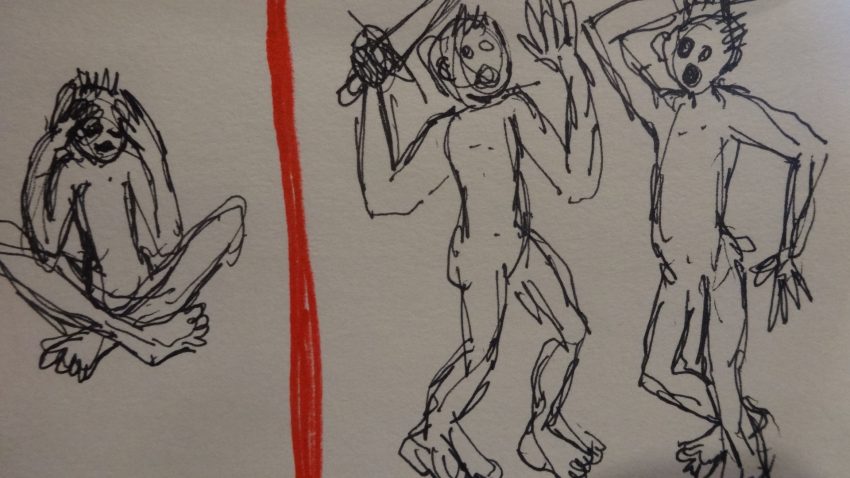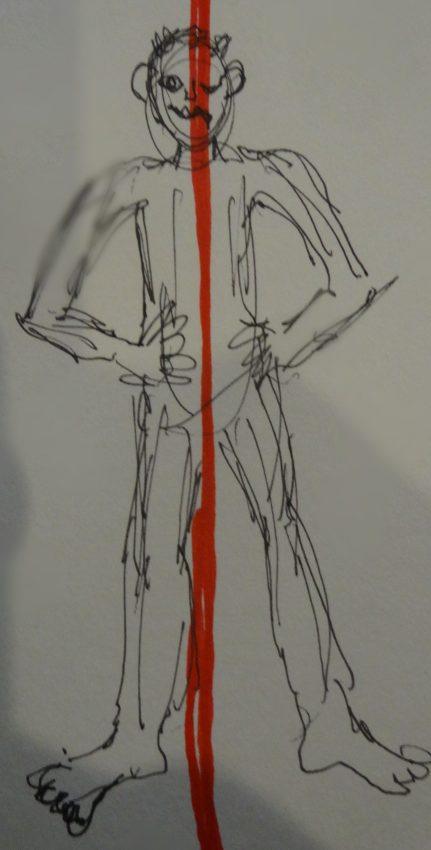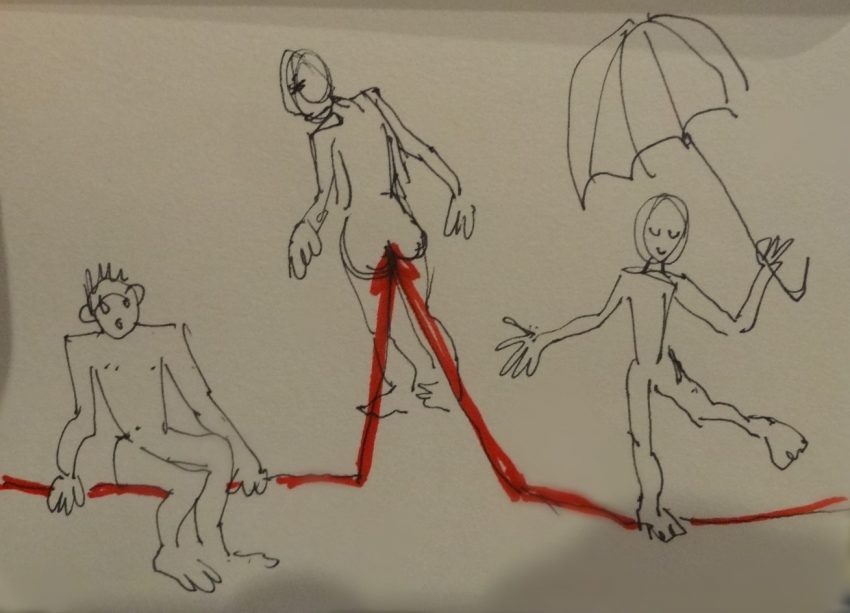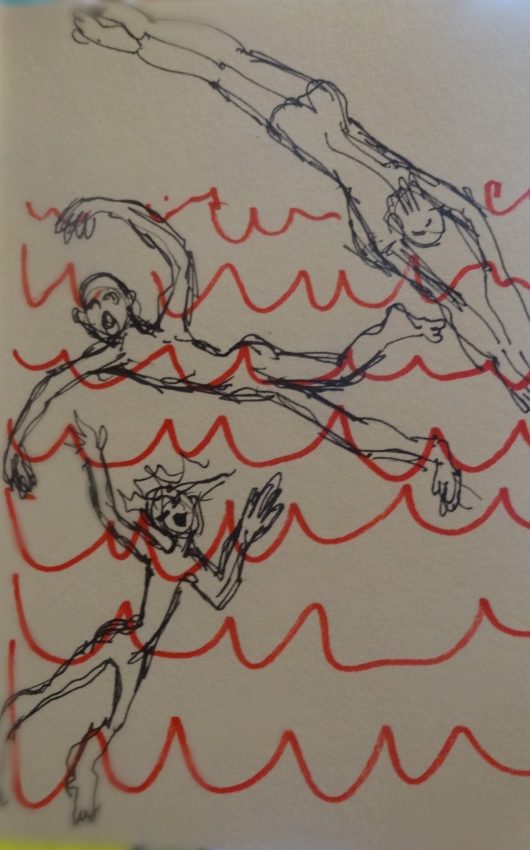Writers and journalists

There is a difference between writing from the sidelines and being sidelined. For example, writers can be sidelined if they are women, old or of the wrong colour or political persuasion and that might be because of marketing priorities, censorship, legal status, politics or prejudice.
What does it mean to be sidelined and made powerless, or considered of no importance?

Are writers and journalists different?
I found myself wondering if journalists do, or ought to write from the sidelines. Are journalists impartial observers? Can they be partial commentators who take sides? Then again, whatever kind of writer we are, can we ever honestly claim to be impartial in our judgements? How do we find out if we are biased?
In the end, does life force us to take sides?
Taking sides

We all end up taking sides even if it’s an inadvertent or short-lived act. How do we end up making those decisions? Are we naturally combative, opportunist or wise enough to judge who deserves our support? Is it down to personality, ethnicity, religious or political beliefs, economic needs or a bullying parent? Okay – we’ve made a choice and taken a side. Now we need or want to justify our position. We’ll say this is the ‘right’ side. This is the ‘good’ side or perhaps this side is just a little bit better than that other.
Seeing the world from both sides
Sitting on the fence or balancing on a tightrope or taking the moral high ground. (The most invidious position is the last!) If like me, you are someone for whom life felt dangerous even as a child, you may have learned to observe and to wait before committing yourself to any side. The sidelines may have felt the safest place to be for a while at least.
Sideline disfunction – the shores are subject to change
It isn’t possible to remain on the sidelines in our lives forever. Sooner or later the tides of history sweep us up with all the other detritus and deposit us on one shore or another. We are flotsam from a wreck or jetsam from a sinking ship that will be discarded and destroyed by time. The question, therefore, is were we derelict in our duties to society or did society abandon us to dereliction? There was never a time or a place when the sidelines, the sidelined and those who sideline remain fixed and static.

Who is safe and who is sorry and who do we choose to blame?
Sidelines and borders
Borders are porous and subject to change. There are rules about sidelines in games and how they are managed but they too, alter over time. I tried to establish the number of countries that have changed their borders, their names and their status since 1945 but gave up. It’s too complex for a brief post.
Personal sides and borderlines
What are refugees but people on the wrong side of a line? I was born in a country that ceased to exist 40 years ago. I went to work in another that was 8 years old. I was told I was European and that Europeans were Caucasian which was the same as being white-skinned. I live in a multi-ethnic Europe. I’ve never visited the Caucasus. The country of my nationality has decreed that I am a Citizen of Nowhere. I live in a world of shifting borders inhabited by a single race of people with a Pantone of thousands of different skin colours, ethnicities and cultures as portrayed by photographer Angélica Dass. My body is a physical boundary/borderlines between my parents and me and my children that is about change and decay and death and life.
Whose side am I on? Who will pick me for their side?
2 Comments on “Sidelined”
The difference between writers and journalists
I consider myself a writer who is sometimes a journalist; but I don’t like calling myself the latter because to do so is to associate myself with an ethically confused profession.
Most journalists are myopic. They can’t even see the sidelines. They are certainly not interested in them. The higher up in their profession they go, the more narrow sighted and narrow minded they become.
Sidelines
If you are not part of the establishment you are automatically in the peripheral wastelands. The media should work to correct this exclusion but it reinforces it. Journalists believe you have to be in the centre of things to observe and understand them accurately. By the centre they mean both geographically – everything happens in the capital by definition and nothing of importance happens outside it – but more importantly they believe the geographical centre to be the intellectual and cultural centre.
The media preaches and preachers are always half right but also half wrong. They are oblivious of tje “emic-etic” trap (an anthropological concept that states that living with a tribe and observing it from outside will give you two different kinds of information).
If you remain at the centre – if you live and work in London or Paris – what you see and hear around you are personalities discussing day-to-day trivia. Gossip in other words. You get no overview. You are incapable of extrapolation. You get no vision of the future.
At least half the information we need to make democratic decisions can only be obtained from a neutral distance, from outsiders on the side-lines who have a semi-objective view and are able to make connections between things that are not obviously connected. If we are to solve climate change, the answers will not come from system insiders.
The world needs outsiders because they are the ones with original ideas but it doesn’t want to hear from them. Even the supposedly progressive left-wing media is closed to “foreigners”.
Balance and objectivity
These are easy to define: balance is letting everyone speak for themselves. Objectivity is being able to present the facts without judging them and being able to fairly represent an argument with which you wholly disagree. You can come to a conclusion but only when you have considered all the evidence, not just that which suits your case. For a masterclass in this see Arthur Koestler’s Reflections on Hanging which carefully demolishes every argument put forward for capital punishment.
Where media insiders hog the airwaves and no one holds them to account they are unable to do this “fair explaining” What you then get is propaganda (misinformation) emanating from respectable media institutions and this leads to the fruitlessness of polarisation. The only way to advance is to introduce new information and new maverick voices into the equation but the media doesn’t do this for the reasons given above. Result: debate goes stale; problems are left unresolved; journalists and politicians continue to get away with doing an inadequate job and getting rewarded for it.
Hi Nick, Thank you so much for this comment. I am so happy that my short post provoked such a wonderful, in-depth and thoughtful response. I do hope that other readers take the time to consider what you have said here. Best wishes – Ruth